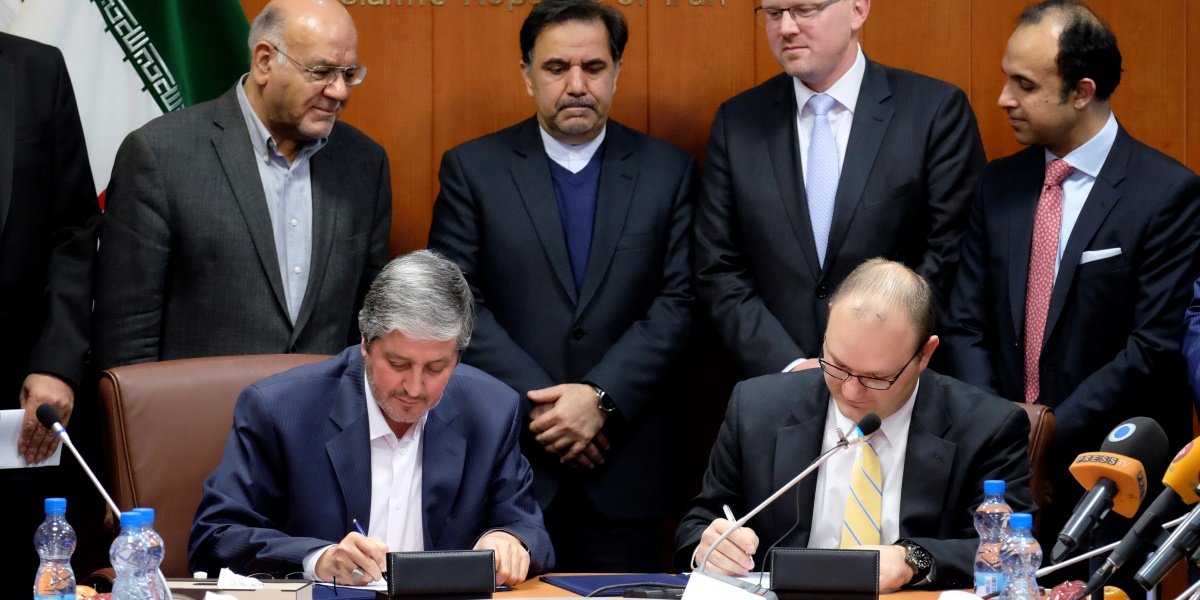From Astana to Geneva: The Syria Crisis
Whether the current negotiations will be able to solve the Syria crisis is still uncertain, but it is good to see that at least something has started to be done in the name of peace
More


In Washington, a Battle over Strategic Priorities Rages On
Although the incoming Trump administration's strategy in the global arena remains blurry, it is certain the world will be never the same after the inauguration ceremony
More
The next U.S. administration is more willing to work with Russia and work on eliminating Daesh threats. However, there is still some ambiguity about the extent of cooperation and whether there will be any joint effort to resolve the crisis in Syria
Iran is trying to establish its own area of influence before Trump is sworn in and points to Iran as the main other in the Middle East
The rise of populism on the back of anti-immigrant sentiment and protectionism slowly eradicates the West's liberal credentials
If the conditions are favorable, Turkey might follow the course of military cooperation with Russia until the end, regardless of whatever reactions it bears the brunt of from the NATO side.
Turkey's Struggle with DAESH
While struggling to stand against the deadly threat of DAESH terrorism, Turkey is isolated in its fight by some that still believe Turkey supports DAESH
More


The Post-Sanctions Iranian Economy and Turkey
As of today, both Iran and Turkey are among the 10 top export partners of each other, presenting a trade outlook to be further developed.
More
Germany recognizing the 1915 Armenian incidents as genocide is another strategic move to push Turkey in a corner for the sake of the EU, with no regard for the chaos in the Middle East - proof that the EU is ideologically blind
The United States' failure to manage the Arab Spring revolutions coupled with its failure to enforce its red line following the Ghouta chemical attack raises questions among Saudi Arabia's ruling elite about Washington's reliability as an ally
The arrest of Iranian-Turkish businessman Reza Zerrab in Miami does not give any message as thought by the Turkish opposition - it only shows that a U.S. attorney did his duty
The deepening crisis in the Middle East increases the value of Turkey's friendship, which the United States and others are trying to win back. In turn, Turkey cares very little about being liked. The country's leaders are completely focused on national interests.
The overdue EU attempt to find a solution to the Syrian civil war and its resulting crises, aided by Ankara, is an opportunity for European values to end the ambiguity of its stance
Having lost control of Syria, Yemen, Iraq and Lebanon to Iran by turning on the Muslim Brotherhood during the Arab Spring revolutions, Saudi Arabia now seeks to regain its influence over the Middle East.
At the regional level, Iran will continue to aggressively pursue opportunities to increase its influence, at least until Turkey and Saudi Arabia, which are distressed by U.S. President Barack Obama's Middle East policy, are no longer troubled U.S. allies.
The Obama administration, knowing that the cease-fire would not last, started talking about Plan B in order to strong-arm Moscow into some kind of commitment.
Iran's sectarian expansionist policy forces the Turkish government to back the Saudi government. However, Turkey, as the only country able to prevent the power struggle between the two countries, is aware of the dangers of a possible sectarian war and thus calls the two countries to reconcile.
Although abounding in energy sources compared to other regions, the Middle East suffers from the increasing significance of the energy market in shaping the nations' foreign policy in the 21st century.
The crisis between Ankara and Moscow that started after Turkey shot down a Russian fighter jet that violated Turkish airspace is about to enter a critical phase.

















